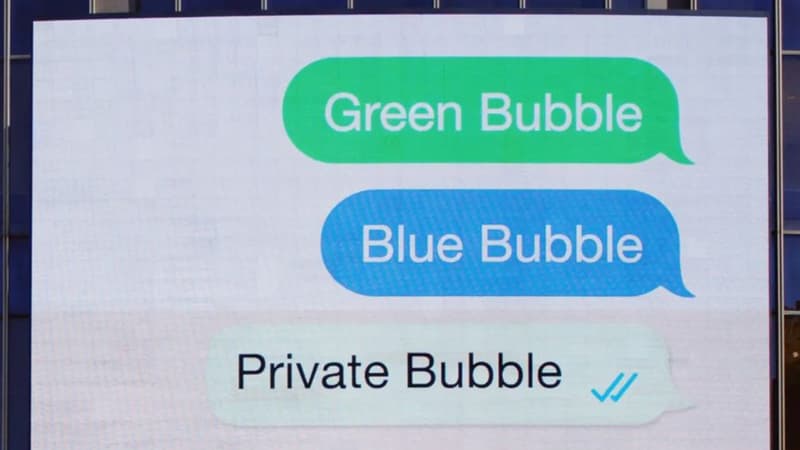Following mutual criticism in the metaverse, the invective between Facebook and Apple continues more than ever. Mark Zuckerberg, in a photo posted to his Instagram account on Monday, attacks Apple’s iMessage messaging service. He denounces the lack of security and praises the merits of WhatsApp, another application in his Meta group. However, the two apps show different signs of weakness when it comes to security. Apple for its lack of interoperability and security between devices, WhatsApp for its reporting limitations.
iMessage, encrypted… between iPhone
In fact, Apple uses end-to-end encryption when sending messages. Therefore, the content cannot be decrypted by the company’s servers. Also, when an iPhone sends a message to an Android device, a green bubble is displayed. Between two iPhones, a blue bubble appears. This color scheme reveals much more because encryption does not apply if an iPhone is communicating with an Android device, as Mark Zuckerberg is quick to point out.
Encrypted messages can be stored in iCloud, but the Apple brand specifies that it can communicate this data to the authorities in the event of a search warrant. However, it is possible to disable iCloud backups or back up directly to a computer using encryption.
Apple continues with its iPhone-only policy. The iOS 16 update allows you to unsend messages up to two minutes later and edit them up to five times. This requires both devices to have iOS 16 installed, and again, it’s only for iPhone-to-iPhone communication.
WhatsApp, encrypted, but…
For its part, WhatsApp uses the same type of encryption as other so-called “secure” applications, such as Signal. However, this encryption can be easily lifted from the moment a message is flagged as inappropriate. From then on, the WhatsApp moderation teams have access to the previous four messages. In the event of a complaint, WhatsApp may decide to carry out an automated moderation analysis using artificial intelligence so that it takes the necessary, but also human, measures.
In general, WhatsApp, on the other hand, has access to the user’s metadata, which is never encrypted: the phone number, the name, the associated accounts or even the time the messages were sent are accessible to their teams.
The question of confidentiality also arises when a company exchanges with its clients via WhatsApp. In fact, if the messages are encrypted between two people, this is not necessarily the case when a user exchanges with a professional, for example for after-sales service or the sale of products remotely. As WhatsApp explains, the professional is free to encrypt the conversations or not, or to exploit the contents of these exchanges for marketing purposes.
Regarding the deletion of messages, WhatsApp gives its users the possibility to make them disappear after sending them and delete the chats after 24 hours, seven days or 90 days.
In late September, Facebook was sued for allegedly establishing a workaround to the latest privacy rules implemented by Apple. This allows users to opt out of being tracked by apps at all times.
Source: BFM TV


